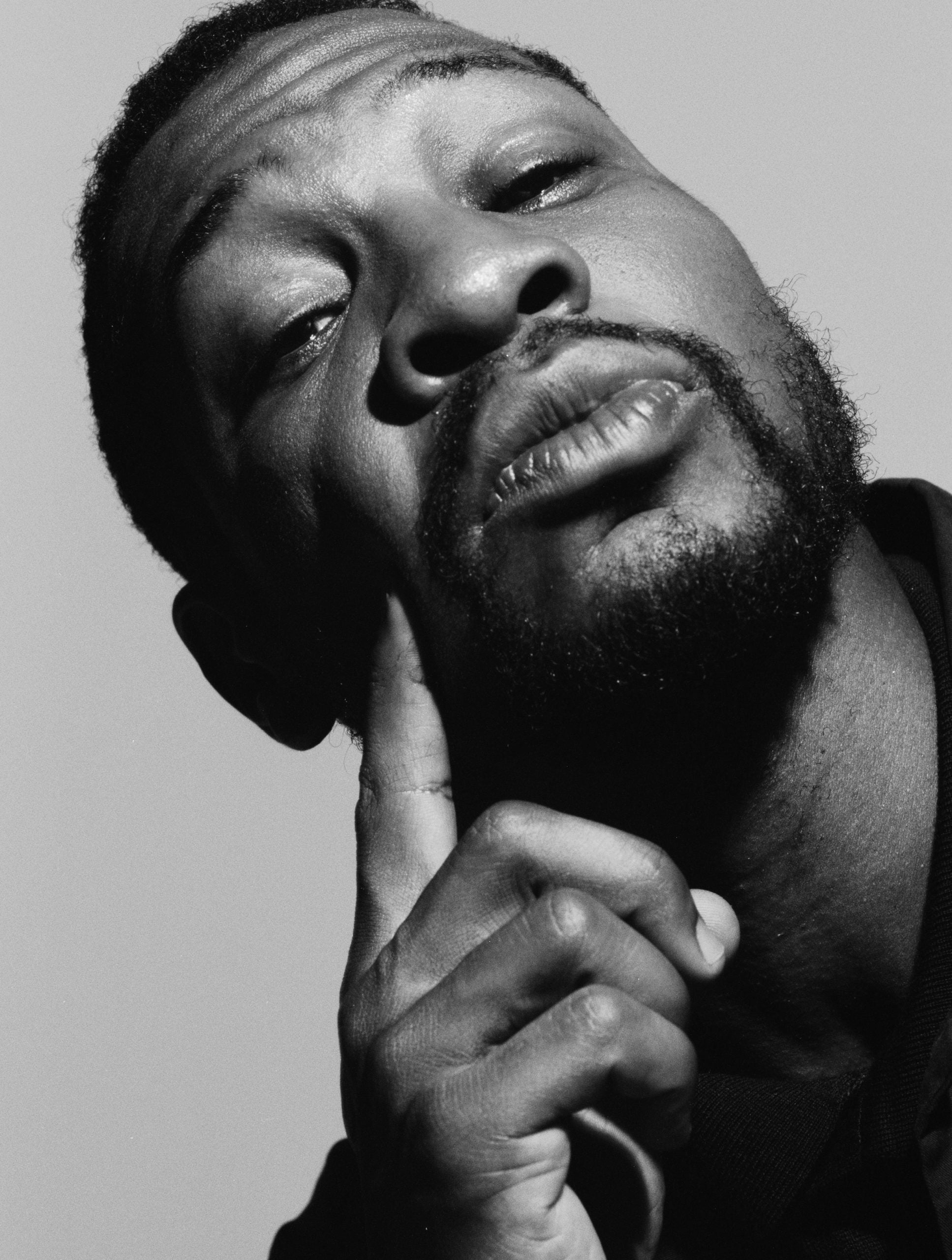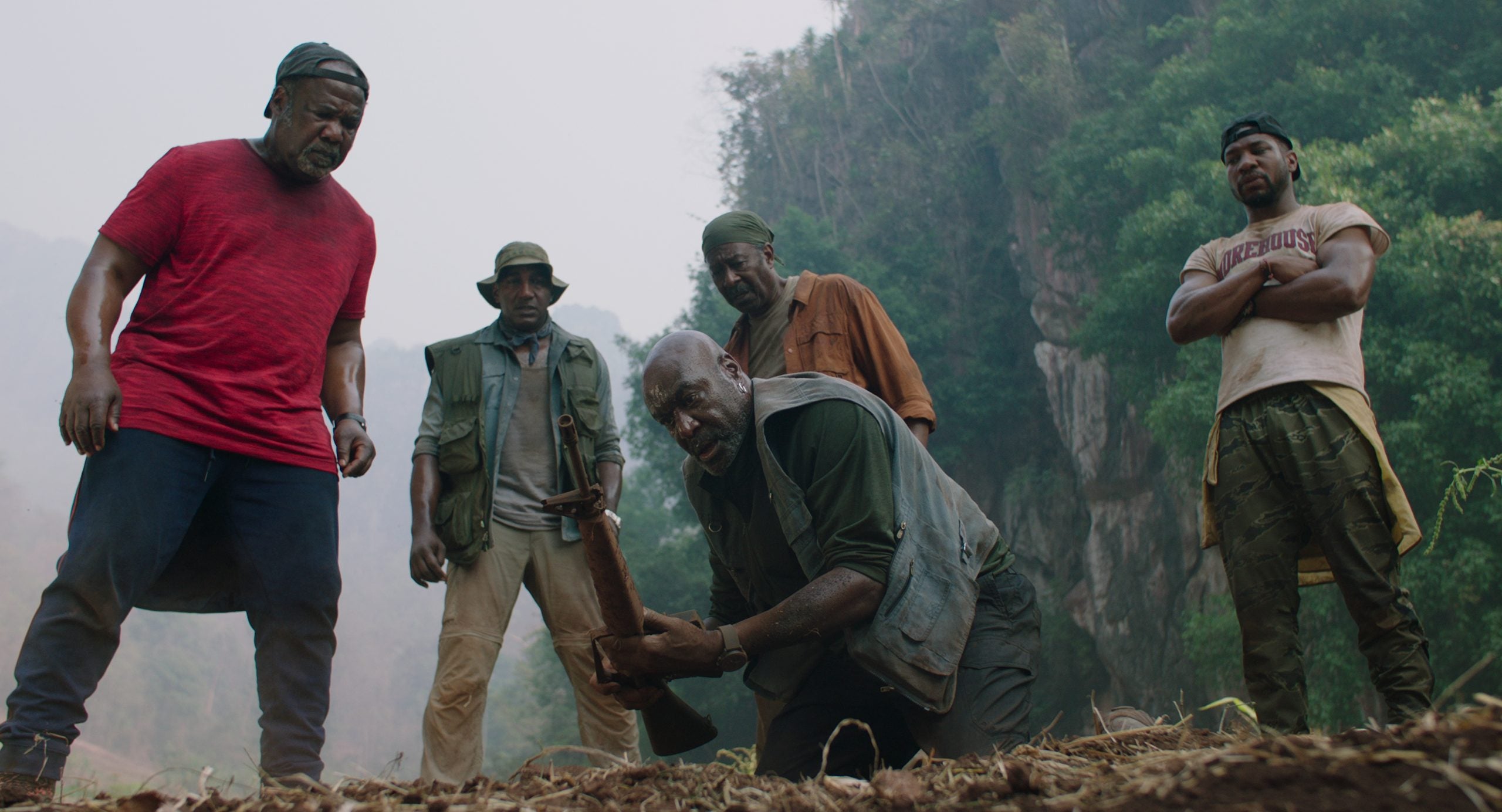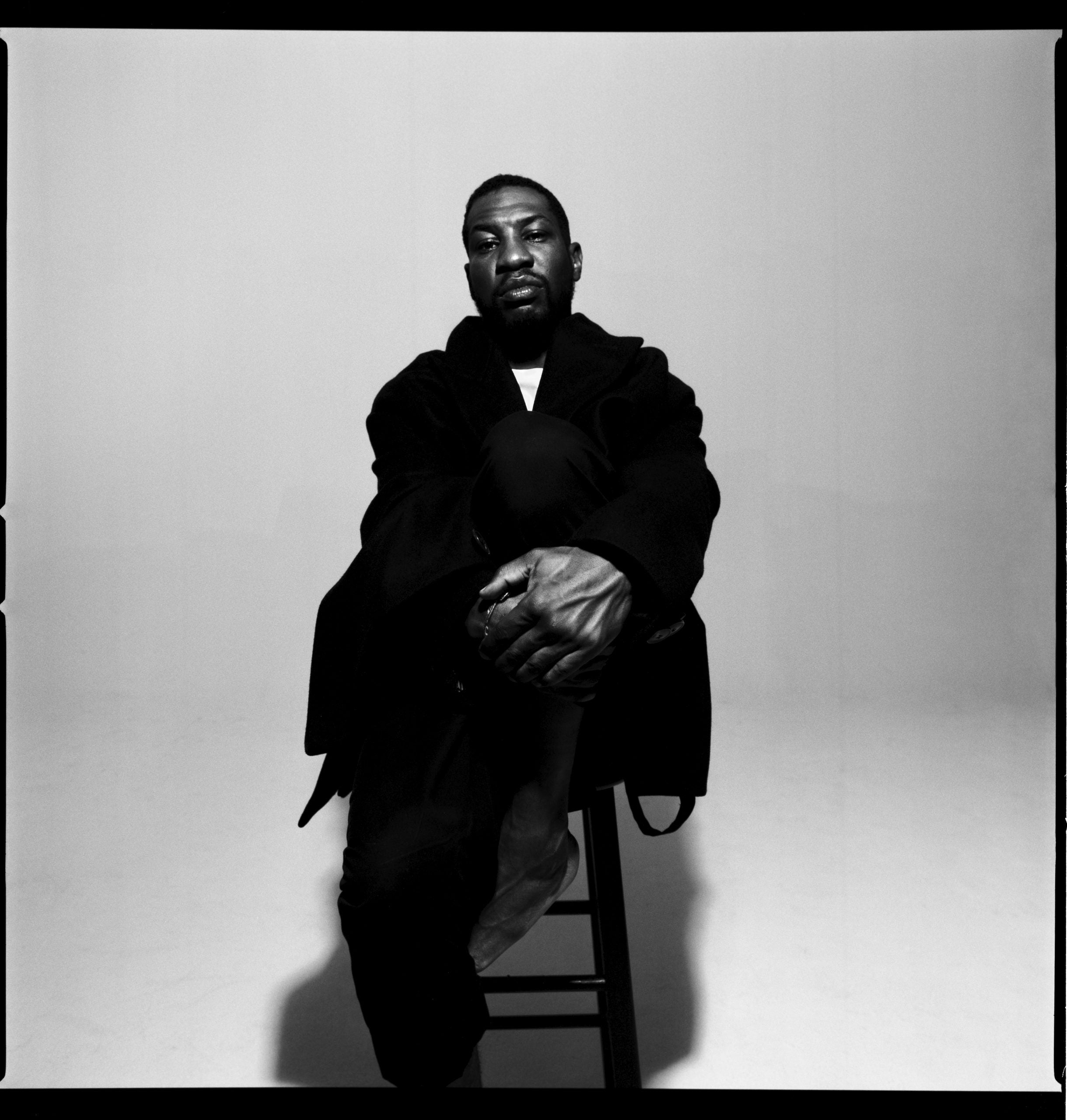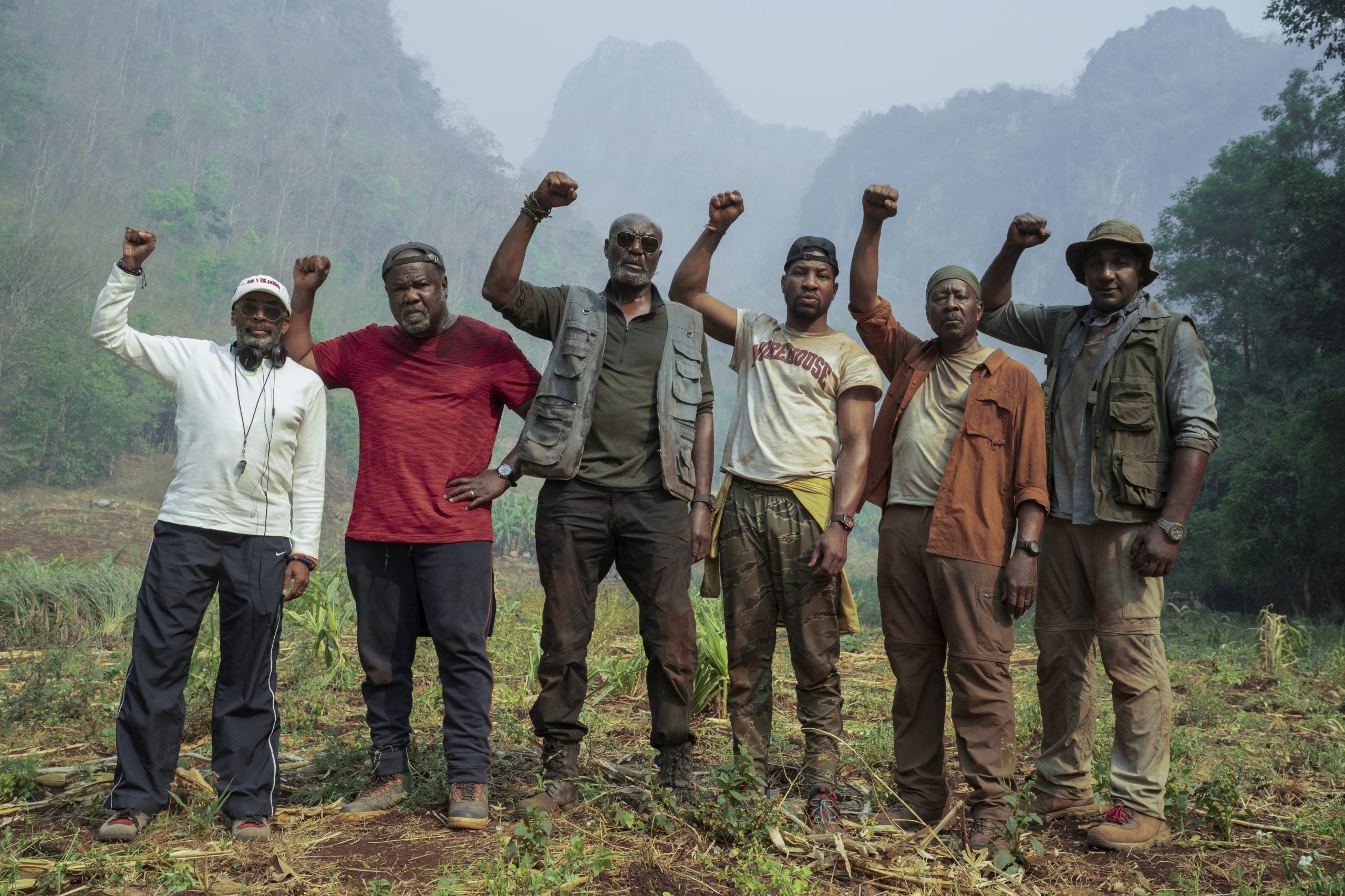The median age of the four leading actors in Da 5 Bloods—Netflix’s Vietnam-based drama from director Spike Lee—hovers at 64. Delroy Lindo, Norm Lewis, Clarke Peters and Isiah Whitlock Jr. all bring poetic justice to the legacy of African American soldiers in Saigon. Fresh off a BlacKkKlansman Oscar win for Best Adapted Screenplay, Lee’s latest story centers on Vietnam vets return to Southeast Asia in search of buried treasure and the demons they left behind there. But to hook younger viewers, the presence of an electric Chadwick Boseman was mandatory, as was the addition of 30-year-old new Black Hollywood phenom, Jonathan Majors.

To know Majors is to love the Yale Drama School alumni’s work in 2019’s The Last Black Man in San Francisco, and to look forward to HBO’s upcoming Lovecraft Country for his portrayal of leading man Atticus Black. Da 5 Bloods casts the Texas-raised actor as the Morehouse-graduated David, son of Delroy Lindo’s tortured, MAGA-loving veteran, Paul—and he’s welcome comic relief until, suddenly, he seriously isn’t. (Spike named most characters after The Temptations as a Motown-loving inside joke.) ESSENCE caught up with Jonathan Majors maintaining proper social distance by phone to discuss his place in Spike Lee’s latest tightly rolled joint.
What was the specific key you used to unlock the character of David? Was there anything that gave you a specific insight into him that made the role an easier process for you?
JONATHAN MAJORS: It was all about that father-son relationship. We all got Davids. What I saw was a young man who was essentially doing something so ancient, something we all do as young men. Sometimes it’s with your biological father, sometimes it’s your stepdad, your uncle or grandfather: where you try to figure out who this brother is as a man. Because that’s going to give you guidance for who you’re going to be. Once you crack that, you understand a huge part about yourself. And it’s a huge mystery for David. In my eyes, there’s a huge mystery with me and my father, and I saw that in the film.

Where there parallels between David’s relationship with Paul and your relationship with your father?
MAJORS: Yeah, just the fact that David’s father is a war vet. My father served in Desert Storm, was in the Air Force. I come from a long line of military men. [Of] my generation, me and my brother are the only men who haven’t served in the armed forces. So I know what it is to grow up in a military household. I also know what it is for your father to be a bit of a mystery, kind of cut off from you. My father disappeared when I was about 9 years old. And since then, there’s always been a search for him, a search to figure out who he is. He’s since reemerged and is attempting to do the grandfather thing, and there’s a lot of bullshit that goes with that. But that’s his journey.
I just had that need to connect, to understand the whys of our father. Why’d he do that? Why’d he act like that? Why he treat me like that? And then still, you want to be close to him. Regardless of how bad it was or how good it was. That was really something I understand from my life and tried to put into David.
I come from a long line of military men. I know what it is to grow up in a military household. I also know what it is for your father to be a bit of a mystery.
Jonathan Majors
For Da 5 Bloods, did men in your family inform you about military life, or the aftereffects of war?
MAJORS: The Vietnam War, there’s certain things I understand. There’s research that happens with the role. And the stories I heard from my uncle. There were certain things my grandfather did that I realized, that’s not normal. He slept very late. We were told from the age that I can remember, “Stay in bed and never wake up your grandfather.” I didn’t realize the significance of that story actually until I got the role.
I was on my way to dinner to meet Delroy and Spike. I got on the phone with my uncle and he told me a story about a Vietcong sneaking into my grandfather’s bunk—my grandfather grabbing the man by the throat, ripping his throat out and killing the man as the man was trying to kill him in his sleep. And they had to use a tranquilizer to get my grandfather to open up his hand from the trauma and the terror of it. That story, I was like, I get that. I understand that.

What’s your view of the way Vietnam has been handled in previous films like Apocalypse Now, which Spike referenced in Da 5 Bloods?
MAJORS: When I watched those films, it’s a young man’s war. These are boys who are going to fight. There’s also a book, The Things They Carried. That book was like a textbook to my research, just to figure out, again, what dad may have gone through. Those movies, they glorify this war and it’s so Hollywood, it’s so John Wayne. But the other thing I noticed is, these are all White boys. Everybody is these Midwestern, Southern Yankee boys that don’t really look like us. These guys would shoot them, kill them, rape them, do terrible things. And that’s their perspective.
The dope point about our film is that it’s like we took [Laurence Fishburne’s story in Apocalypse Now] and blew it up. Because we was all brothers. Those films are great. Wonderful, glad they’re there. We wouldn’t have our films without those films. But we also wouldn’t need our film without those films. So it’s two-sided.
Vietnam movies like Full Metal Jacket all lacked the Black perspective.
There’s a scene in our film where we’re literally in the middle of battle and we heard that Martin Luther King has been killed back home, right? And the amount of turmoil and push-and-pull that’s happening in that moment for those brothers is something we’ve never seen in cinema. Muhammed Ali said it best: “They never called me nigger,” as he says. So it was deep. It was an honor, and we haven’t seen this yet.

Spike filmed in Saigon, Thailand and Bangkok. What were your impressions of Vietnam? Ironically, it’s an American tourist destination now.
MAJORS: Yeah, it’s deep. When we started off shooting in Thailand, the culture is very different. It was cool, it was nice. Had a massage, go to the bar, walk the streets, it’s fun. We got to Vietnam, one of the things I can say: these folks are tough. These people fought a war. They fought a giant and they won. They are not a docile group of people. They did not drink the American Kool-Aid.
With an American flag in my back pocket, a bandana, one day I was going out looking for hair grease. I had to leave the little bougie place I was in and travel into the city. And brother, when I tell you I thought maybe I should take this rag out of my pocket, because I don’t want no problems? [laughs] I don’t want no problems. Because these fellows are looking at me like, keep it moving, keep the peace. So I mean, it was very cool to be a part of that and to actually live in a culture that was vibrant, proud and tough. I loved it.
Miles Marshall Lewis (@MMLunlimited) is an essayist, a pop culture critic and a fiction writer.


